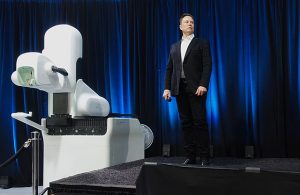In a significant stride towards unlocking the potential of brain-computer interfaces (BCIs), Elon Musk's brain-implant venture, Neuralink, has recently announced a successful fundraising round that netted an impressive $280 million. The Founders Fund, a venture capital firm with support from tech icon Peter Thiel, was in charge of announcing the news on Musk's X social network, formerly known as Twitter.
Neuralink's meteoric rise in the burgeoning field of neurotechnology has not only captivated the imagination of the public but also drawn the attention of investors to a plethora of companies working on similar brain-interface technologies. According to PitchBook, neurotechnology startups collectively raised $143 million by June 26th, 2023, marking a steady increase from $278.1 million in 2022 and $518.9 million in 2021. The competition is intensifying, with rivals like Synchron Inc. gaining momentum by initiating their first US clinical study, surpassing Neuralink in this particular race.
One pivotal milestone for Neuralink is the recent green light from the U.S. Food and Drug Administration (FDA) to commence human clinical trials. This approval signifies a significant step forward in the company's mission to create a sophisticated brain-computer interface that utilizes electrode-laced wires. However, this cutting-edge technology involves an invasive procedure that necessitates drilling into the skull to implant the device, making it a subject of scrutiny and debate.
Despite the promising prospects of Neuralink's technology, the company has faced its share of controversies. Critics, including animal rights groups, have taken issue with Neuralink's animal testing practices, particularly experiments involving primates. Such concerns have raised ethical questions about the ethics of testing on animals for the advancement of human technology.
Furthermore, earlier this year, the U.S. Transportation Department initiated an investigation into Neuralink after allegations surfaced that the company had failed to follow proper protocol when shipping potentially hazardous materials. This incident underscores the importance of stringent safety measures, especially when dealing with pioneering technologies that have the potential to revolutionize the field of healthcare and beyond.
As Neuralink advances, the world will be watching closely to see how this innovative venture shapes the future of human-machine interactions.























